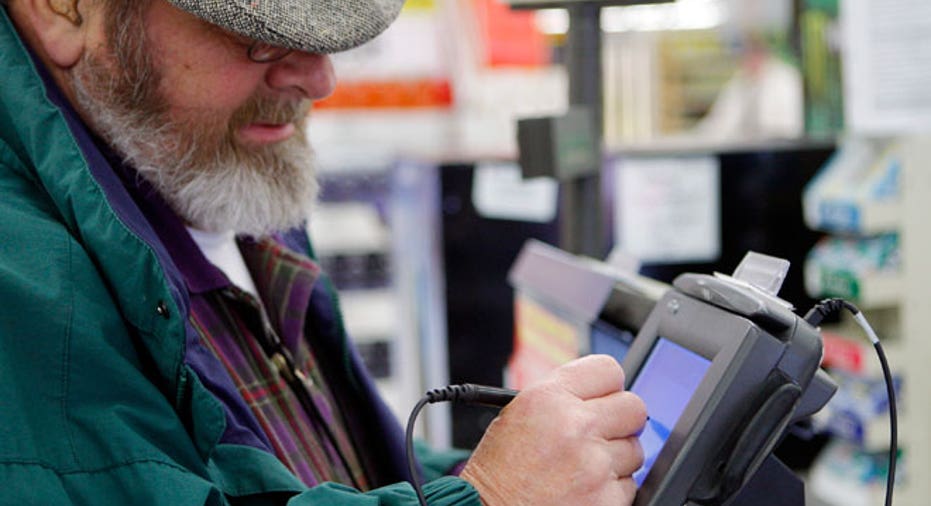1 in 4 Of Us Has No Emergency Savings, Here's How to Reverse That

The Great Recession has taught us that we need to have an emergency savings account in place to survive any economic instability, but for many, that’s easier said than done.
According to the latest Bankrate (NYSE:RATE) survey, 26% of Americans have no emergency savings.
Compared to a year ago, the percentage of Americans with at least three months’ expenses in savings declined from 45% last year to 40%.
“The big change is that people recognize how important it is to have emergency savings,” says Greg McBride, chief financial analyst at Bankrate.com. “After the brutal recession and long-term unemployment they know it more than ever, but they’ve been powerless to make progress with building up a fund because of stagnate incomes and high household expenses; there’s not enough wiggle room in budgets to ramp up savings.”
Experts recommend people have three to six months of expenses (which should include rent/mortgage, utilities, food, gas/car payments) tucked away to cover any unexpected events.
However, according to Bankrate, 67% don't have six months of savings in the bank and half have less than three months.
McBride advises households with a sole breadwinner or run their own business save even more--about nine to 12 months of expenses. “This savings cushion would be what would pay the bills if your pay check goes away.”
Saving in the current economic climate can be tough, but not impossible, says Jeff Reeves, editor of InvestorPlace.com. “None of this will be easy; it requires discipline and really making some hard decisions between wants vs. needs.”
Even the highest-income households ($75,000 or above annually) are having trouble saving, as 54% don’t have a six-month cushion. Those between ages 30 and 49 are the most likely to have an emergency fund, and 18-30 year-olds are the most likely to have up to five months’ expenses saved up.
With a little more than one in four people having no emergency savings, experts offer the following tips to enhance an emergency fund:
Automate It. Laura Adams, author of “Money Girl's Smart Moves to Grow Rich!” (http://lauradadams.com/) recommends establishing a set amount of money or percentage to come out of a paycheck every period to make saving painless and automatic.
“Tell your Human Resources company to funnel that amount into a savings account. That takes away the temptation of spending and puts it on autopilot,” she says.
Not waiting until the end of the month to save whatever money is left over also makes saving a priority, adds McBride. “If you wait until the end of the month nothing will be left. Make it the first thing, not the last.”
Experts advise against investing the emergency savings to make sure they are accessible when needed.
“Put it into a FDIC-insured account and don’t touch it until you absolutely need to,” says Adams. “An emergency fund isn’t there to build wealth; it’s there for a back-up so you don’t slip into debt if something goes wrong.”
Create a ‘Fun’ Account. Reeves recommends setting up separate accounts to make money decisions more visual: one for covering expenses, one for savings and one for fun.
“Setting up an account and giving yourself an allowance—not just a mental account—that once it runs dry it’s done will help keep your spending in check and your savings on track,” he says.
Tell People. Letting friends and family members know can help build up an account quicker.
“They might be more inclined to give you cash for your birthday or holiday,” says Adams. “They’ll also be more mindful of spending when proposing vacations, dinners and other events.”
Think Big. While saving a little every week can add up over time, Reeves says it might be easier to take the savings hit all at once.
“It’s stressful to always be thinking about saving that $2 to $3 every week. Rather than nickel and diming every decision, look into how to save money in big chunks.” He says buying a used car over a new one, skipping the vacation for a year or not doing any updates to a home can help funnel the money into savings. “I’d rather feel the pain all at once than die of tiny little cuts all the time.”
Rethink Your Cash Infusions. Michael Chadwick, CEO of Chadwick Advisors, suggests funneling any unexpected money directly into an emergency savings account.
“When a bill goes away, like a car loan or credit card, take that payment and start putting it into your savings — you are already used to living without that money. Take the additional money from the holidays or your tax refund and put it away.”
Liquidate Assets. We all have items in our house that we don’t use, so Adams suggests liquidating them to get a little cash infusion.
“Sporting equipment gathering dust or jewelry that you never wear or that has gone out of style can easily be sold for pretty good prices that can help boost your emergency fund,” she says.



















